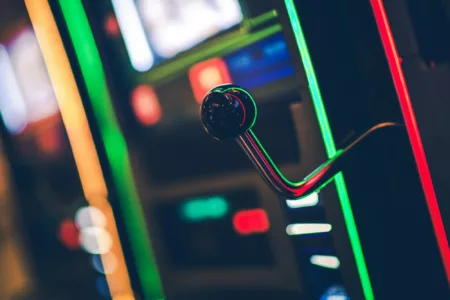In a world where digital entertainment is at the forefront, gaming has emerged as a dominant form of leisure, especially among students. But what if this passion for gaming could be more than just a pastime? What if it could evolve into a productive hobby, shaping skills and opening new avenues for personal and professional growth? This article will explore how students can transform their gaming experiences into something fruitful and constructive.
Why Students Enjoy Gaming
Students are naturally drawn to video games for various reasons. Gaming serves as an escape, a virtual world where they can unwind from the stresses of academic life. It’s a universe filled with vibrant colors, compelling narratives, and the thrill of accomplishment. Some students even search for academic experts to write my research paper so that they have more time for gaming. In these interactive worlds, students find entertainment and a sense of community and belonging. Online multiplayer games offer a social platform where friendships are formed, strategies are discussed, and teamwork is essential.
Benefits of Gaming for Students
Gaming, contrary to some opinions, can be more than just a source of entertainment. It has a plethora of benefits for students. Video games enhance cognitive skills such as problem-solving, strategic thinking, and decision-making. These games often require quick reflexes and adaptability, skills beneficial in real-life scenarios. Moreover, gaming can be a great stress reliever, providing a much-needed break from the rigors of academic life. Interestingly, the skills honed through gaming can also be valuable in academic contexts, such as learning how to write a reflection paper. This type of paper requires critical thinking and the ability to analyze one’s experiences; skills often sharpened through strategic and reflective gaming.
8 Tips on How to Turn Gaming into a Productive Hobby
Transforming your passion for gaming into a productive hobby can be rewarding, combining the joy of play with the satisfaction of personal growth. Here are eight practical tips to help you channel your gaming activities into a more meaningful and constructive part of your life:
1. Set Clear Goals
Identify what you want to achieve with your gaming. Is it to improve your strategic thinking or to enhance your multitasking abilities? Setting clear objectives helps you focus your gaming sessions productively. Additionally, this approach allows you to measure your progress and stay motivated. Consider keeping a gaming journal to track your goals and achievements.
2. Balance Gaming with Responsibilities
It’s crucial to maintain a balance. Allocate specific times for gaming, ensuring it doesn’t interfere with your academic or personal responsibilities. Remember, moderation is key; too much gaming can lead to burnout and negatively impact other areas of your life. Use gaming as a reward for accomplishing tasks or a planned leisure activity.
3. Engage in Educational Games
There’s a wide array of educational games that are fun and enrich your knowledge and skills in various subjects. These games can be particularly useful in enhancing language, math, and even coding skills. Seek games that challenge you intellectually and contribute to your academic or career aspirations.
4. Join Online Communities
Engaging with online gaming communities can enhance your social skills and provide networking opportunities. Sites like Twitch and Reddit are great platforms for this. Being a part of these communities also helps you stay updated with the latest gaming trends and techniques, which can further refine your gaming skills and knowledge.
5. Create Content
Start a blog, YouTube channel, or Twitch stream to share your gaming experiences. This can hone your digital content creation skills and even open pathways to monetization. Creating content encourages you to look at games critically and creatively, improving your communication and technical skills.
6. Learn Game Development
If you’re interested in the mechanics of games, consider learning game development. Platforms like Unity offer resources for beginners. This can be a stepping stone into a career in game design or software development, providing a practical application for your gaming interest.
7. Participate in Tournaments
Competitive gaming can be exhilarating and rewarding. Participate in local or online tournaments to challenge your skills and learn from others. Tournaments improve your gaming skills and teach you how to handle pressure and think strategically under different scenarios.
8. Reflect on Your Experiences
After gaming sessions, reflect on what you learned and how it can apply to other areas of your life. This habit of reflection enhances your critical thinking and self-awareness, making your gaming sessions more than just entertainment but a source of valuable life lessons.
By incorporating these tips into your education gaming routine, you can transform your gaming hobby into a productive and enriching part of your life, balancing enjoyment with personal development.
Conclusion
Turning your passion for gaming into a productive hobby is not only possible but can be incredibly rewarding. By setting goals, balancing responsibilities, and actively seeking learning opportunities within the gaming world, students can harness the potential of their hobby. Gaming is no longer just a way to pass time; it’s a platform for growth, learning, and personal development. Embrace these tips, and watch as your gaming hobby transforms into a productive, skill-enhancing, and enjoyable part of your life.





